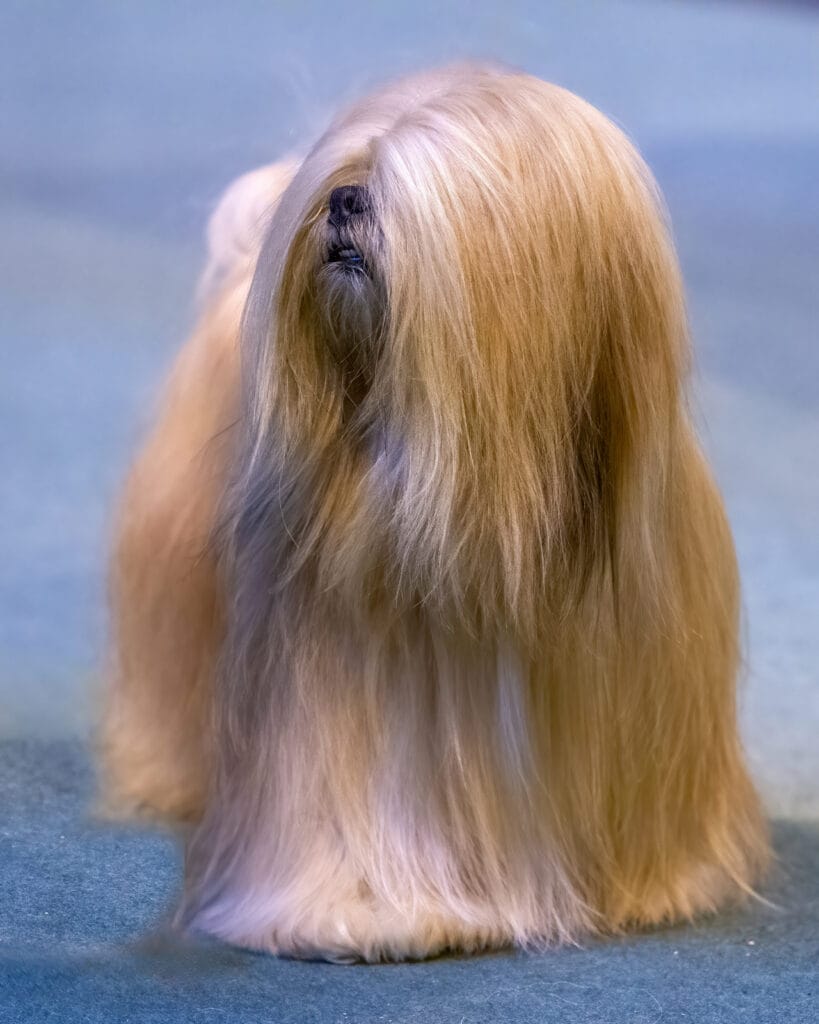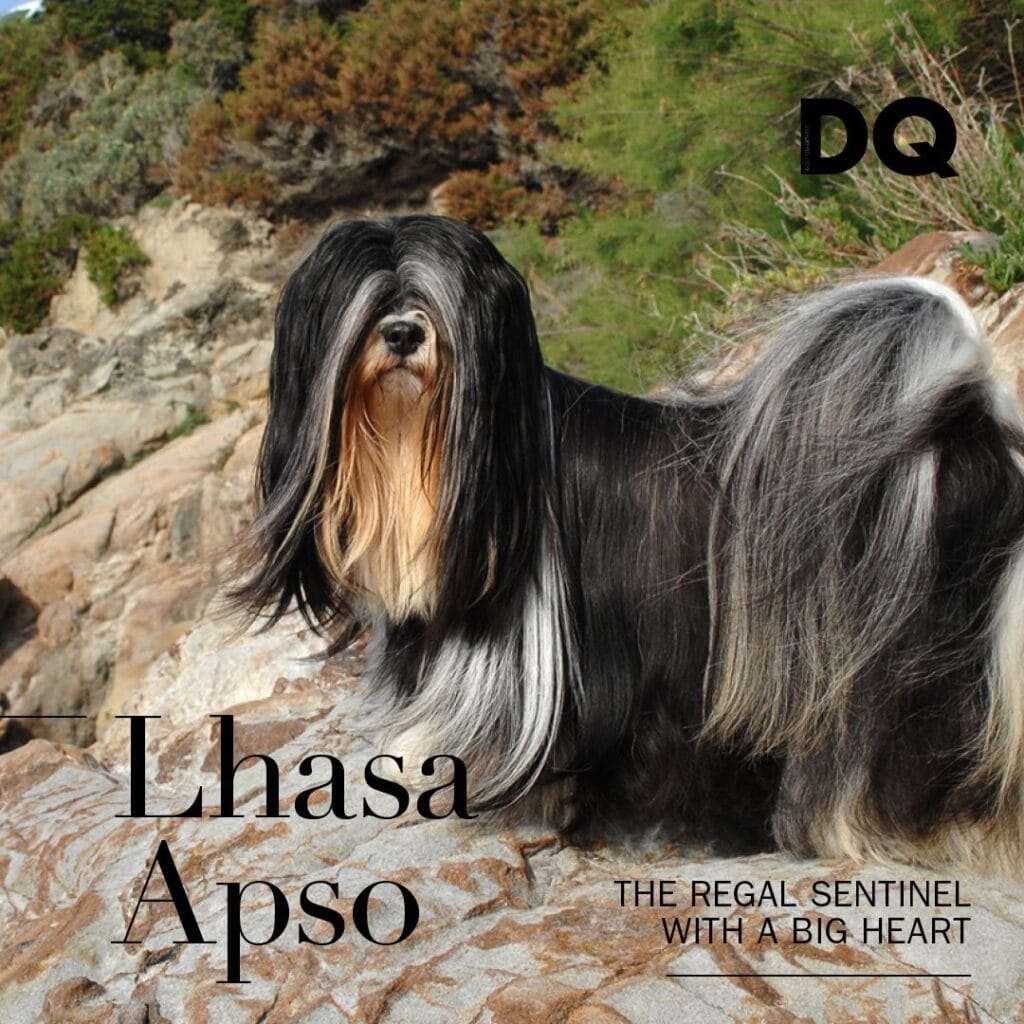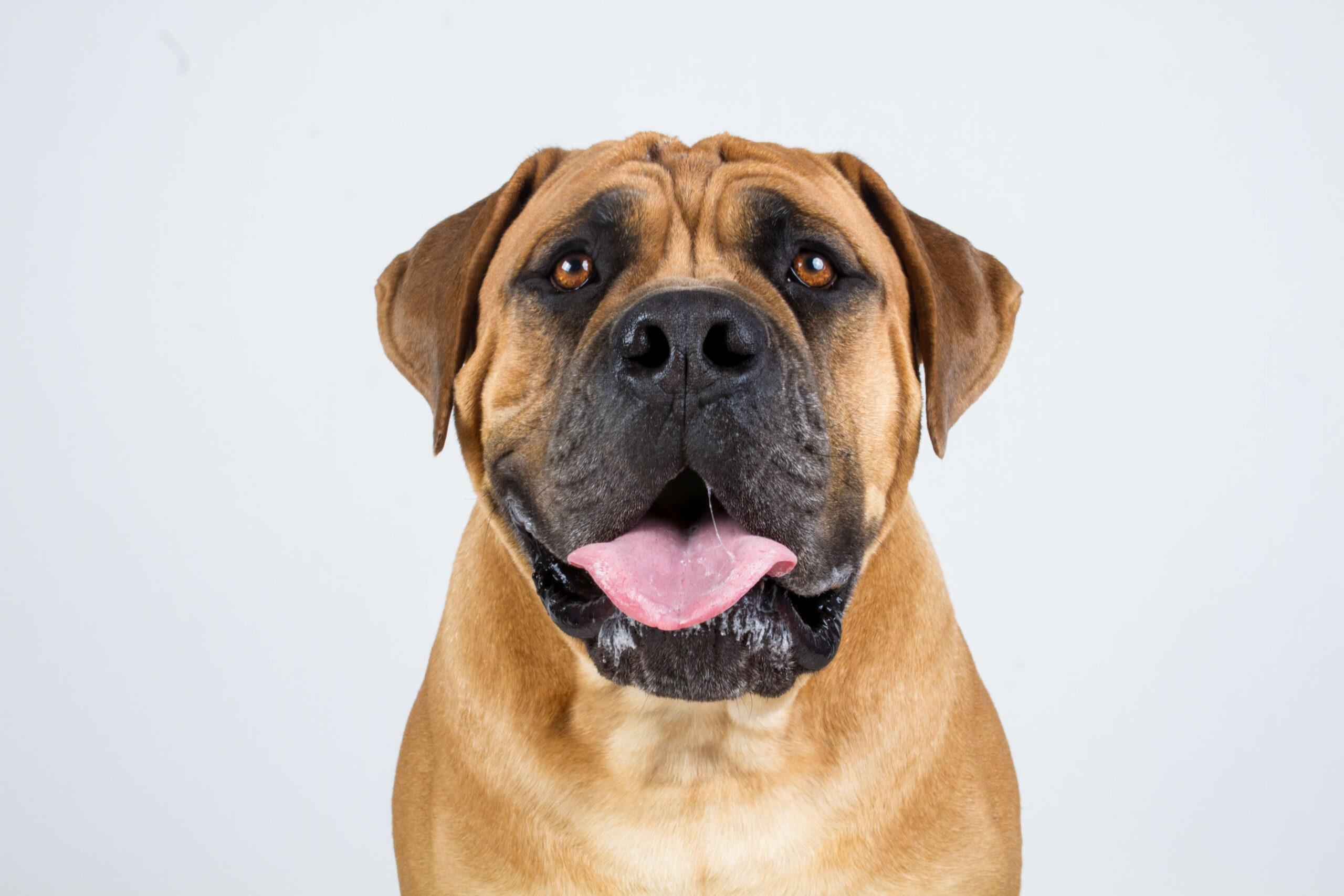The Lhasa Apso, a small yet sturdy breed with a luxurious coat and a confident demeanour, has long been revered as both a companion and a guardian. Originally bred in Tibet to guard monasteries, this ancient breed boasts a fascinating history and a big personality.
History of origins
Hailing from the Himalayan region of Tibet, the Lhasa Apso has a lineage that dates back over a thousand years. These dogs were highly prized by Tibetan monks and nobles, serving as watchdogs inside monasteries while their larger counterparts, the Tibetan Mastiffs, patrolled the exterior. Named after Tibet’s capital city, Lhasa, these little sentinels were believed to bring good fortune and were rarely given away, except as gifts of great honour.

Did you know?
It is thought that Lhasa Apsos sent to China were used to develop the Shih Tzu breed.
Appearance
The Lhasa Apso is a small breed, standing between 25 to 28 cm at the shoulder and weighing between 5 to 8 kg. Yet, despite their elegant appearance, they are surprisingly sturdy and well-muscled.
They are known for their long, flowing double coats, which come in various colours, including gold, red, white, black, dark grizzle, golden, honey, parti-colour, sandy, slate-coloured and smoke coloured. The thick and heavy coat has a hard straight outer coat and a medium undercoat. Their expressive, dark eyes and distinctive beard and whiskers give them an air of wisdom and dignity. Their ears are pendant shaped and their tail is curved, sometimes with a kink at the tip, and should be carried over the back.

Fast fact
In Tibet, the Lhasa Apso goes by his original name, Abso Seng Kye, which means Bark Lion Sentinel Dog. The Lhasa Apso was also associated with the mythical Snow Lion, which Tibetans believe to be a guardian of their country.
Temperament and personality
While they may look like lap dogs, Lhasa Apsos are known for their strong-willed and independent nature. They are naturally alert and can be pretty wary of strangers, making them excellent watchdogs. However, they are intensely loyal to their families and thrive on affection. They are intelligent and can be trained effectively with patience and positive reinforcement. Their playful and sometimes mischievous attitude makes them entertaining companions, though they often have a stubborn streak.

Grooming and care
One of the Lhasa Apso’s most distinctive features is its long, dense coat, which requires regular maintenance. Daily brushing is recommended to prevent tangles and matting, and regular bathing helps keep the coat clean and healthy. Many owners opt for a shorter ‘puppy cut’ for easier upkeep. Additionally, routine eye and ear cleaning, along with dental care, are essential for the Lhasa Apso’s overall well-being.
Exercise and training
Despite their small size, Lhasa Apsos have moderate energy levels and enjoy daily walks and play sessions. However, it is very important with this super smart breed to remember that mental stimulation is just as important as physical exercise. While they can be stubborn, and experience ‘selective hearing’ at times, they respond well to consistent training and early socialisation.

Health and lifespan
Lhasa Apsos are generally a hardy breed with a lifespan of 12 to 15 years, though many live even longer with proper care. Some common health concerns include hip dysplasia, progressive retinal atrophy (PRA), atopic dermatitis, and kidney issues. Regular veterinary check-ups and a balanced diet contribute to long, healthy lives.

Did you know?
Although the average lifespan of a Lhasa Apso is 12 to 15 years old, many can live to their late teens, and some beyond 20. The oldest Lhasa Apso lived to be 29 years old.
The Lhasa Apso in South Africa
Lhasa Apsos have found a dedicated following in South Africa, where their affectionate yet protective nature makes them well-suited to both urban and suburban living. Their small size makes them adaptable to apartment life, provided they receive enough mental and physical stimulation. Our warm climate means owners should be mindful of their thick coat and ensure they remain cool and comfortable during hotter months.

Did you know?
Lhasa Apsos are very popular as family pets, and many 20th and 21st century celebs have owned them, including Liberace, Elizabeth Taylor, Kurt Vonnegut, Ellen DeGeneres, Jane Lynch, and Gwen Stefani.

Is the Lhasa Apso right for you?
The Lhasa Apso is an excellent choice for experienced dog owners who appreciate an independent yet loving companion. They thrive in households that can provide them with stimulation, regular grooming, and plenty of love. While they may not be the most obedient breed, their charm, intelligence, and devotion mean that once you’ve lived with a Lhasa Apso you’ll never want to be without!



